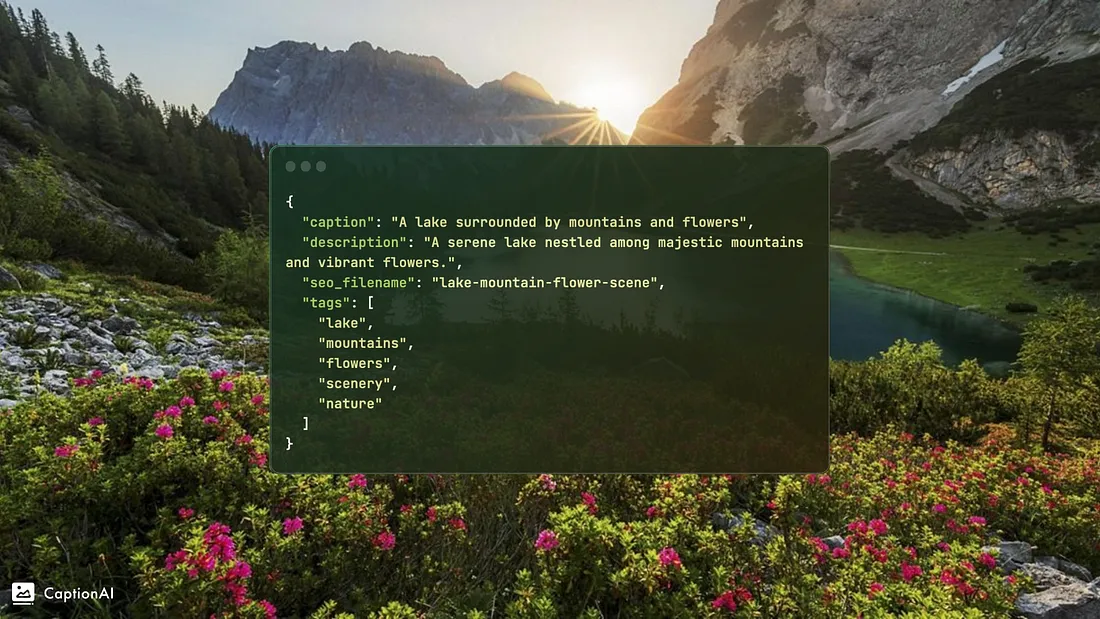Using AI for Web Accessibility and SEO
Effortlessly generate image metadata like caption (alt-text), description, and tags for improved web accessibility & SEO 🚀

Images work to explain. They provide a clear picture but the interpretations always differ from person to person. Like the artwork of Da Vinci, angle is what matters when viewing an image.
Web accessibility refers to designing websites and web content in a way that ensures everyone, including individuals with disabilities, can perceive, understand, navigate, and interact with the information presented online. And, SEO is the way of optimizing a website to rank higher in search engine results pages (SERPs).
While these two may seem distinct, they are deeply interconnected, and there’s a powerful tool that can help you improve both: Artificial Intelligence (AI).
In this blog post, we’ll explore how we can leverage AI to make the web more inclusive and discoverable with the automatic generation of image metadata.
The Importance of Image Metadata
Images play a significant role in web content. They enhance the visual appeal and engagement of a webpage. However, without proper image metadata, they can become barriers for individuals with disabilities and hinder SEO efforts. Here are some of the reasons why image metadata is important:
- Accessibility for Individuals with Disabilities: Screen readers can help convey the content and purpose of an image using the metadata.
- Improved Search Engine Ranking: Search engines like Google use alt text as one of the factors to understand the content and context of images.
- Better User Experience: Including descriptive alt text can help users know the context even if the image is not loaded. This is especially beneficial for users with slower internet connections or limited data plans.
- Legal Compliance: Many countries have laws and regulations that require websites to be accessible to all users, including those with disabilities.
- Contextual Clarity: Alt text ensures that contextual information is not lost if the user is not able to view the image for whatever reason.
Introducing CaptionAI
Auto generate descriptive image captions, descriptions, and tags using AI for enhanced web accessibility, search engine ranking, and rich user experience.
Try it now!


CaptionAI is a service designed to help you automagically generate image metadata like captions (alt-text), descriptions, and tags for the images. It provides a collection of compact yet robust APIs that empower you to streamline the process of image metadata generation.
Whether you’re looking to make your visual content more accessible, improve search engine optimization, or simply organize your digital assets, CaptionAI can be of help.
CaptionAI can also assist in generating relevant image tags. These tags help search engines better understand the content of your images, improving your website’s chances of ranking higher in search results. Moreover, it can aid in organizing your media library, making it easier to manage and search for images.
Getting Started
To generate image metadata with CaptionAI, you would need an API key. Start by creating an account if you haven’t already (a free plan is available). You can then generate an API key from the dashboard.
Generating Image Metadata
Once you’ve your API key, you can use the POST /caption endpoint to generate image metadata. You can either pass a publicly accessible location of the image or a local path to an image file. Most of the standard image formats are supported: jpeg, png, gif, webp, etc.
# Get caption (alt-text) Using publicly accessible image location
curl -X POST "https://api.captionai.co/v1/caption" \
-H "Authorization: Bearer " \
-H "Content-Type: application/json" \
-d '{
"image": "https://example.com/image.jpg"
}'
The caption request only generates a caption (alternate text) for the image by default. You can expand the response to include description, seo-filename and, tags by setting expand to true.
# Get caption and other metadata using direct file upload
curl -X POST "https://api.captionai.co/v1/caption" \
-H "Authorization: Bearer " \
-H "Content-Type: application/json" \
-d '{
"image": "'$(base64 -w 0 /path/to/file.jpg)'",
"expand": true
}'
This request is processed asynchronously in the background, and results are available via the GET /request/{job-id} endpoint. The {id} of the queued job is returned in the response header X-Job-Id of this request. You can also get this ID from the CaptionAI dashboard.

The accuracy of AI-generated metadata largely depends on the complexity of the images. While we are capable of generating highly accurate caption for the images most of the time, it’s essential to note that no AI system is perfect, and occasional errors may occur.
Learn more
Check out the API documentation to learn more about the available API endpoints. Get started for free at captionai.co. Need more free credits? You can always reach out to us at [email protected].






